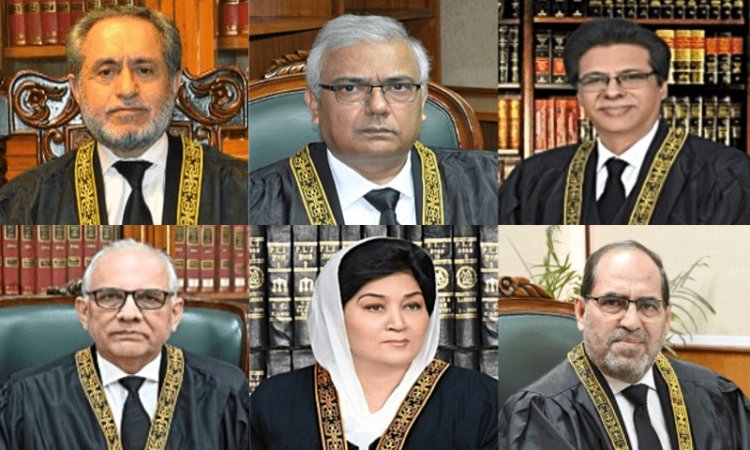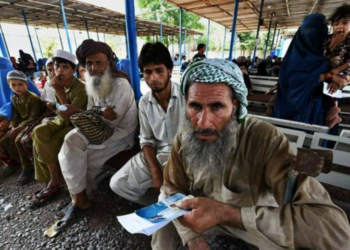Islamabad, January 15, 2025: The Supreme Court’s constitutional bench on Wednesday questioned the government’s decision not to try the perpetrators of the Army Public School (APS) attack in a military court, despite the existence of the Army Act and its relevance to the case.
The hearing, led by Justice Amin-Ud-Din Khan, focused on appeals against the trial of civilians in military courts. The bench also sought clarity on why a constitutional amendment was deemed necessary to conduct terrorism trials in military courts.
Khawaja Haris, representing the Ministry of Defence, argued that the nature of the crime determines whether a trial falls under the jurisdiction of a military court. “If a civilian’s crime is related to the armed forces, the trial is conducted in a military court,” Haris explained.
Justice Jamal Khan Mandokhail raised concerns about whether the intent behind the crime should also be considered, specifically whether the purpose of the crime was against the country’s interests. He also questioned why cases such as the attacks on the General Headquarters (GHQ) and Karachi airbase were not tried in military courts.
Haris referred to the 21st Amendment case, which had addressed attacks on GHQ, airbases, military installations, and places of worship. He explained that the Army Act allows crimes directly related to the military to be tried in military courts.
Justice Mandokhail sought clarification on what “related to the military” entails. Haris replied that it refers to crimes directly tied to the provisions of the Army Act. When asked whether the APS attack met this criterion, Haris confirmed that it did, citing connections to an army officer and the military.
Justice Mandokhail then questioned why the APS case was not tried in a military court despite this connection. He further asked why a constitutional amendment was necessary for terrorism-related cases when the Army Act already provided for such trials.
Haris explained that the constitutional amendment expanded the scope of military courts to include a broader range of crimes beyond those related to military discipline and duties. He added that crimes committed in the name of terrorist groups or religion could also be tried in military courts under the Army Act, without requiring constitutional amendments.
Justice Muhammad Ali Mazhar observed that the intent behind a crime could be evaluated during the trial, while Justice Amin noted that accused individuals could argue the lack of intent in their defence during military trials.
The constitutional bench adjourned the hearing until Thursday (tomorrow) after hearing arguments.








